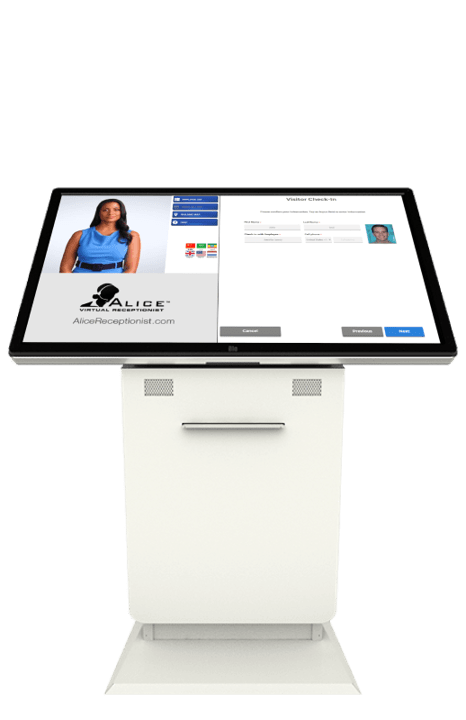A recent survey has me thinking about AI and ChatGPT.
I receive tons of emails pitching me stories every week. Some are irrelevant to our readers, while a select few are a good fit. Lately, I’ve received an endless stream of emails about ChatGPT, including a press release for a survey about ChatGPT. The survey was conducted by Resume Builder, an online resource that assists job seekers in creating resumes that will get them noticed.
Key Findings of the Survey
- 49% of companies currently use ChatGPT; 30% plan to
- 48% of companies using ChatGPT say it’s replaced workers
- 25% of companies using ChatGPT have already saved $75k+
- 93% of current users say they plan to expand their use of ChatGPT
- 90% of business leaders say ChatGPT experience is a beneficial skill for job seekers
How Companies are Using ChatGPT
- Writing code – 66%
- Copywriting/content creation – 58%
- Customer support – 57%
- Creating summaries of meetings or documents – 52%
- Research – 45%
- Generating task lists – 45%
- Other – 3%
Can This Be Right?
I was surprised and skeptical about the percentage of companies using ChatGPT, an application that was only introduced last November. I was equally skeptical about the percentage of companies who said they’ve used it to replace workers. For clarification about the results, I spoke with Stacie Haller, chief career advisor at Resume Builder. Her explanation for the high percentage of companies currently using ChatGPT is that 85% of survey respondents were under age 45.
Haller also noted that these are not scientific surveys. “We keep our fingers on the pulse of the changing employment marketplace, and when we see something, we ask if something is going on there,” she told me. “We identify the trends, and somebody can dive in deeper.”
We discussed how AI could be used to replace workers. One example Haller cited is in human resources for writing job descriptions and responding to applicants.
“[Companies] are finding this can do it better or well enough, and they can be more strategic by allocating their resources to other parts of their organization,” she explained. “If there’s an entry level job doing this work, that job may be going away, but maybe they want to increase their resources working on diversity or use that salary to hire in other areas where they might want to dedicate a resource.”
Another prime area is IT coding, where AI can do it faster and more economically. “If you’re a coder, you might want to expand your skill set by becoming a developer,” suggested Haller.
Based on the survey results, Haller isn’t ready to sound the alarm, and I wouldn’t either over an unscientific survey. However, she views AI as a workplace evolution and noted that somebody will still have to work with the AI tool to request the information and massage the results.
Is the Publishing World on the Verge of Obsolescence?
Closer to home, my home, in the publishing world, expect some evolutionary changes. At the Ricoh Philadelphia dealer meeting in February, a statistic was cited that there is 80% more content online today than two years ago. With more AI-generated content, it’s safe to assume that percentage will grow exponentially.
For many of us experimenting with AI-written content (Disclaimer: We are not using AI to generate articles at The Cannata Report.), that content is mostly easy to spot versus human-written content. But I fear it won’t always be that way.
I’ve been playing with ChatGPT for the past month. I’m impressed by what I’ve seen, but not too impressed. I’ve had mixed results experimenting with the tool. I asked it to write articles on several topics, and it was obvious that the results were AI generated (See my Editor’s Letter in this issue.). It wasn’t bad, but it lacked the distinctive voice that most writers possess.
I also asked it to create 30- to 50-word SEO (search-engine optimization) summaries of articles, and more often than not, it missed the mark and went well over my requested word count. I continue to write those myself.
I’ve also asked it to suggest titles for articles. Again, a mixed bag. Some were excellent, others disappointing. A couple of titles in this issue were suggested by ChatGPT, although I mixed and matched some of its suggestions.
I begrudgingly acknowledge that I might have been more successful if I had provided ChatGPT with different prompts. Perhaps that will come with more experience using the tool or if I upgrade to the paid version ($20 a month) that MPS guru and facilitator of the AI Explorers Group, an industry think tank focused on AI, West McDonald, uses.
That version is reportedly more reliable and accurate than the free version, and there is less chance of hallucinations (nonsensical, inaccurate, or alarming responses). The paid version also draws responses from a trillion data points versus 300 billion in the original model, according to McDonald’s latest research.
“The biggest thing people have to know is that the better your prompts, the better the results,” said McDonald. He also emphasized that when prompting ChatGPT, don’t stop until you get what you like and always check the facts. McDonald also recommends identifying when a blog or article, or a portion of it is written by AI. “If you’re using it, expose it,” he said.
Regardless of my current experience and McDonald’s observations, the publishing industry has some decisions to make regarding AI-generated content. My ex-wife is the editor of a nursing journal, and the editorial and web team recently discussed how to handle content created by ChatGPT. The decision was only to use ChatGPT for research. That’s because her publication is a peer-reviewed journal and most content is written by nurses and the bot can’t replicate their experiences.
The other reason is that ChatGPT’s knowledge base is only accurate (and I use that term loosely because there is some criticism of its accuracy) through 2021. Keep in mind, however, that the paid version of ChatGPT and the ChatGPT tool used in Microsoft’s Bing search engine are up to date.
One of my colleagues observed during an AI Explorers meeting that she would have no problem publishing AI-generated as long as it was accurate and well-written. My concern is, what are the odds that two people making a similar request to ChatGPT would end up with the same article?
I asked GPT that question, and here’s what it told me.
As an AI language model, the content generated by ChatGPT is based on the input it receives and the algorithms used to generate the output. If two people were to provide the same prompt, ChatGPT would generate similar, but not necessarily identical, articles. This is because ChatGPT’s response is influenced by the specific wording of the input, and the model’s underlying algorithms are probabilistic in nature, meaning they may generate slightly different responses each time the same prompt is given. However, the overall content and structure of the article would likely be similar, as long as the prompts are similar enough.
No Worries, Yet
During the Executive Connection Summit, after Microsoft’s presentation about AI and ChatGPT, a colleague asked if I was concerned about my job. I’m not, especially since I’m closer to the end than the beginning of my career. Until AI can conduct interviews and create legitimate quotes in a well-researched article in a distinct voice there’s no need for concern. However, I’d have serious concerns about my future as a trade magazine editor/writer serving a niche audience if I were younger.
I believe some discerning readers will prefer well-written, well-researched content that doesn’t read as if a bot wrote it, but I’m concerned there will not be enough of those readers in the future. And you can bet the bank that AI-generated content will only improve with age, and it will become increasingly difficult to tell the difference between what was written by a human and what was written by AI. What that means for publications like The Cannata Report is up for debate. I have my opinion, and time—not a long time—will determine if I am right or wrong.
To become a subscriber, visit https://thecannatareport.com/register or contact cjcannata@cannatareport.com directly. Bulk subscription rates are also available upon request and included in our media kit.





